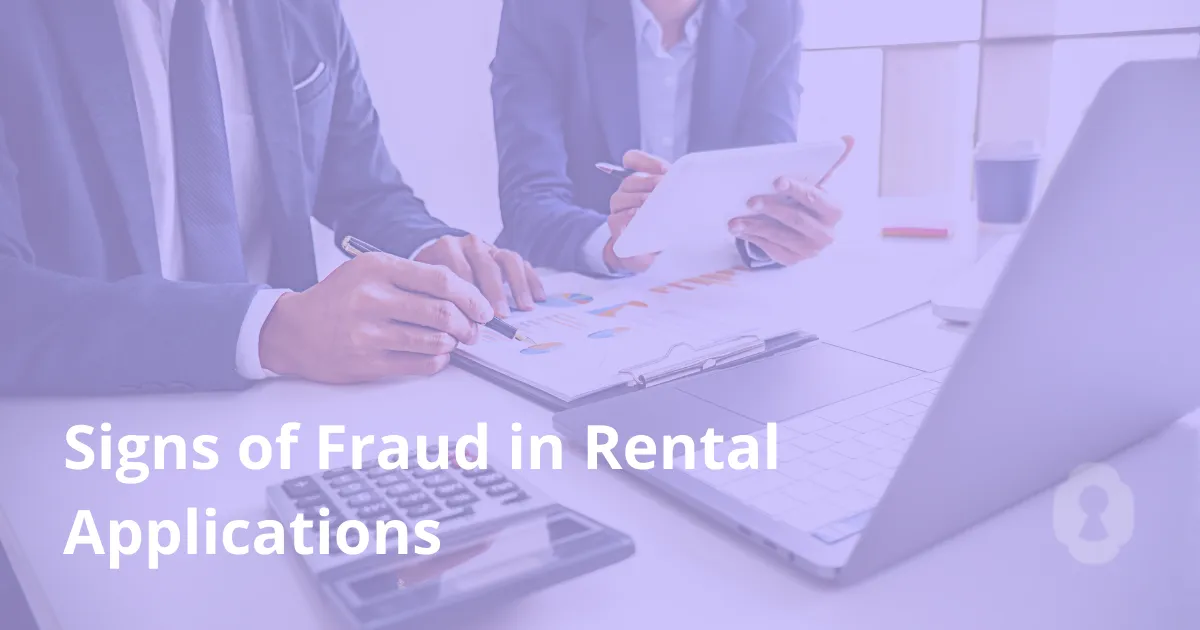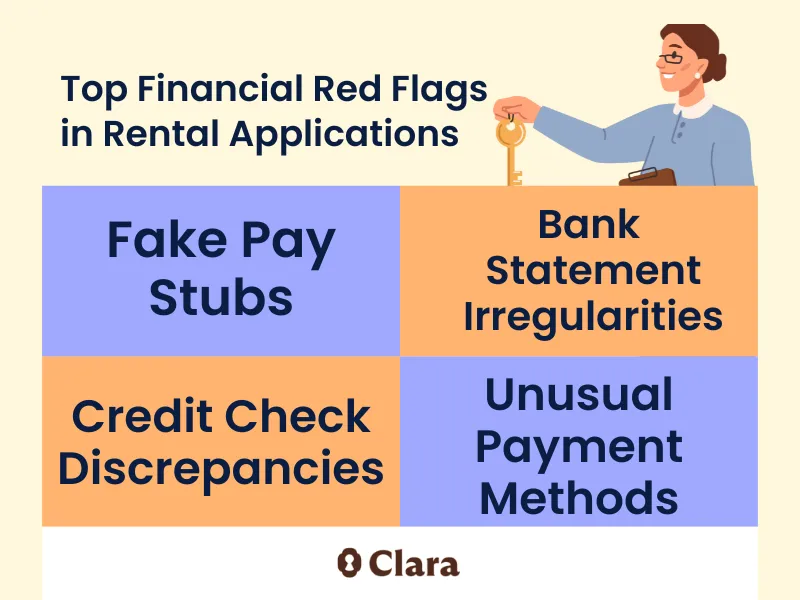
Did you know rental scams are getting more common?
Thousands of property owners lose money every year. It's key for landlords and managers to spot rental application fraud signs.

As a property owner, knowing the warning signs is crucial. Rental scams happen when scammers lie about themselves or the property. This can lead to big financial losses.
"What's often overlooked in discussions about rental application fraud is that it's not just a financial threat—it's an operational one. When property managers become overly suspicious due to past fraud experiences, they risk creating friction in the legitimate tenant experience. The most effective fraud prevention strategies don't just block bad actors but actually streamline the process for honest applicants. This balanced approach means implementing layered verification that feels thorough but not intrusive, using technology that works quietly in the background to flag anomalies while creating a welcoming experience for the vast majority of applicants who are simply looking for their next home."
Taylor Wilson, CEO of Rent with Clara
The rental market is growing fast, and so is rental application fraud. It's crucial for landlords and property managers to know about this issue.
Rental application fraud happens when someone lies on a lease application. They might say they have a job they don't, or show fake income. Online rental listings make it easier for scammers to mess with applications and create fake listing opportunities to deceive both landlords and tenants.
This fraud can cause big problems. Studies show many rental apps have false info, contributing to an increase in fraud across the industry. For example, almost 1 in 5 apps have wrong details. Rent scammers are becoming more sophisticated in how they commit fraud during the application process.
Fraudsters pick rental places for many reasons. Some just want a free place to rent. Others might be up to bigger scams, like stealing identities or hiding money. They see rental properties as easy targets because they deal with a lot of money and often don't thoroughly vet the rental applications. Rental scammer operations are particularly drawn to properties where property management staff may be overwhelmed or lack proper screening procedures.
To learn more about rental scams, check out Equifax's guide on spotting rental scams.
Dealing with a bad tenant can cost a lot. It's not just the money lost; it's also the time and effort to fix the problem. Landlord or property manager professionals need to have good screening methods to avoid these issues, especially when tenants provide false information about their ability to make rent payment on time.
The costs of rental fraud include:
Understanding rental fraud helps landlords and property managers protect themselves and their properties.

Checking if personal info is real is key to stopping rental fraud. Scammers often change details to trick landlords and property managers.
A big warning sign is when identity documents don't match or are missing. Applicants might give fake IDs, change real ones, or leave out important info to hide who they are.
To avoid this, landlords should check ID documents with special software or by talking to the right people.
Be careful of odd contact info patterns that might mean fraud.
Watch out for applicants who:
Checking contact info in different ways can help spot fraudsters.
Problems with social security numbers and identity checks are major warning signs. Landlords can use special services to check an applicant's social security number and look for identity theft.
By staying alert and using these checks, landlords can lower the chance of rental fraud.

When looking at rental applications, it's key to spot financial warning signs. These signs can show if someone might be trying to cheat. It's important for landlords and property managers to check if applicants are financially reliable to avoid losing money.
One big warning sign is when income documents seem off. Applicants might give fake or changed pay stubs to look like they have more money. It's smart to check these documents against other financial papers and call the employer to confirm.
Also, look out for odd pay stubs and bank statements. Watch for things like wrong formatting, strange transactions, or deals that can't be checked. Tools to check these documents can help spot fraud.
Discrepancies in credit checks are another warning sign. If someone's credit score seems too high or low, or if they've opened many new credit accounts, it might be a scam. Doing detailed credit checks can show if an applicant is financially stable.
Be careful of applicants who want to pay in strange ways or offer to pay rent early with unusual terms. These tactics might be to trick you or to hide money. Always stick to normal payment methods and be skeptical of overly good deals.
By watching for these warning signs, landlords and property managers can lower the chance of fraud in rental applications. It's wise to check financial info in many ways and be careful of odd financial actions. This helps keep your property safe.
Verifying an applicant's employment and rental history is key to fighting rental fraud. It helps ensure the credibility of potential tenants and protects your property.
Unverifiable employment records are a major red flag. Landlords should be cautious of applicants claiming jobs that can't be confirmed. Always verify employment by contacting the employer directly, not through the applicant.
Suspicious references and previous landlords can hint at fraud. Watch out for overly positive or generic references. Directly contacting references is crucial. A study shows direct source verification is very effective against rental fraud.
Gaps or inconsistencies in rental history can be a warning sign. Landlords should carefully review applications with unexplained gaps or a history of short-term rentals. This can help spot potential risks.
Background checks can uncover many red flags, like past evictions or criminal records. It's vital to use reliable background check services for accurate results.
Here's a table of common red flags and what they mean:
By carefully checking employment and rental history, landlords can lower fraud risks. This step is crucial in the tenant screening process.
To keep your property safe from fraud, start with a strong tenant screening process. Check who they are, where they work, and their past rentals. Knowing the signs of fraud can help a lot.
Property management is key in stopping fraud. It means doing deep background checks and verifying everything. For more on fraud in rentals, check out Proof.com.
If you've fallen victim to scams, help is out there. The Federal Trade Commission offers tips on dealing with identity theft and scams. Stay alert and informed to protect your property from fraud.